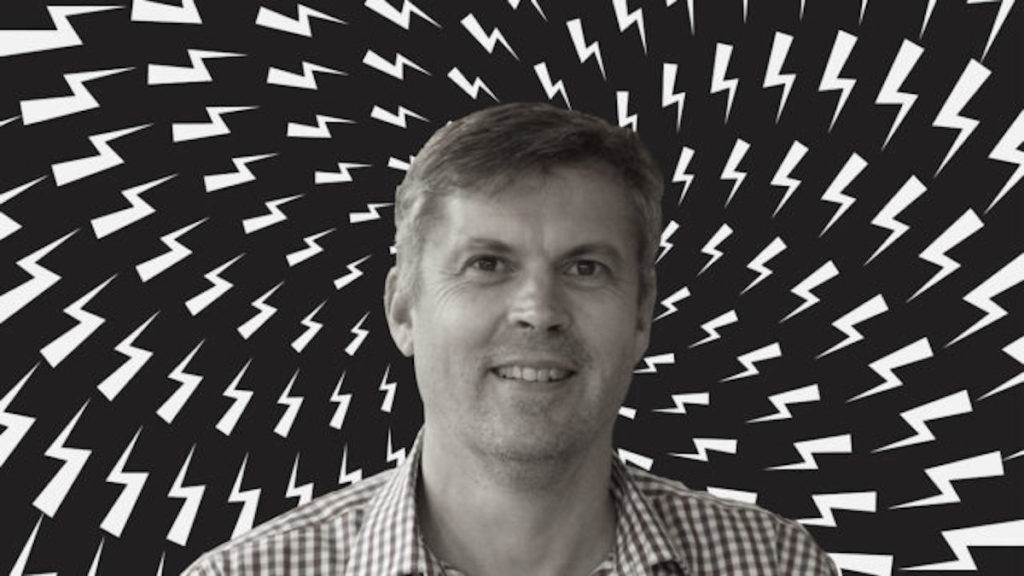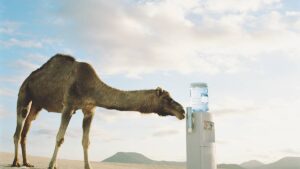Dr Boreham’s Crucible: Go Woke, go broke? Early signs say no concerns with this pyschedelic IPO

Tim Boreham is one of Australia's best-known small-cap share analysts and business journalists.
Amid a worldwide surge of interest in using psychedelic substances to treat stubborn mental health conditions, the ASX possibly soon could host its first pure-play drug developer in this (mind) expanding field.
The private Woke Pharmaceuticals plans a $10 million to $15 million initial public offer (IPO) and a listing “on a suitable public exchange” in early 2023 – if the market gods behave of course.
Woke is into psilocybin (magic mushrooms) and lysergic acid diethylamide (LSD), so to speak.
To Woke co-founder Nick Woolf, the listing plans reflect the strong investor interest in the Sydney-based company, which strives to develop novel therapeutic therapies as registered medical treatments for mental health disorders and other neurological diseases.
The company has partnered with a number of august institutions, including Monash University Medicines Manufacturing Innovation Centre (MMIC) and Macquarie and Swinburne Universities, in Sydney and Melbourne, respectively.
The company has also signed up the ASX-listed contract drug maker IDT Australia to make the finished products.
Woke is eyeing the unmet need of the 20 per cent of Australians who struggle with mental illness, a statistic that’s probably been boosted by the pandemic lockdown.
“The idea behind psychedelic therapy is that the receptive state the drug confers opens the door to fresh ideas about how to think about the past and future,” says Prof David Nutt, psycho-pharmacologist at the Imperial College London and an adviser to Woke.
It’s time, Mr Woolf
The former head of ASX-listed medical pot stock Auscann, Woolf co-founded Woke with investment banker Matt Hayne in June 2021.
“We literally started with a blank piece of paper but were able to move quickly because of the relationships I had built up in medical cannabis, as well as Matt’s ability to access capital,” Woolf says.
The holder of chemistry degrees from University of Oxford, Woolf was also chief finance officer of the listed PYC Therapeutics and was Suda’s (now Arovella) business development manager. And before that, European equities analyst and investment banking roles.
Hayne has a corporate finance and investment background at institutions including Wilson HTM, Phillip Capital and the Commonwealth Bank. He is a whiz at IPOs, reverse mergers and capital raisings – all of which might come in handy.
Woolf says he was impressed with research, notably from Baltimore’s Johns Hopkins University, showing the benefits of psilocybin aka magic mushrooms to treat severe depression.
“There’s an undeniable unmet need,” he says. “There are so many opportunities to potentially use psychedelics to change patients’ thinking about what triggers their conditions.”
In practical terms, Woolf tapped the supply chain and research alliances he forged at Auscann, notably with the MMIC in terms of formulating the rapid-acting compound.
Have a nice trip
While there are hundreds of psychedelic compounds, the research and commercial emphasis is on psilocybin and 3,4 methylene-dioxy-meth-amphetamine (better known as MDMA or ecstasy and by youngsters as the party drug, molly).
Broadly speaking, psychedelics work by creating new pathways between neurons in the brain, thus creating psychological, auditory and visual changes.
Well before the written word, psychedelic plants were used as therapies and in religious ceremonies. In the 1960s, thousands of clinical papers and several dozen books were written, but the war on drugs meant work was stymied for three decades.
As Morgan Stanley notes in a recent report, in the last 15 years several academic institutions have conducted small studies exploring the potential of psychedelics to address a number of medical indications, including treatment-resistant depression and post-traumatic stress disorder (PTSD).
“The impressive results of these small studies have generated great interest in further exploring the potential of psychedelic therapy,” Morgan Stanley says.
(But the Australian regulator takes a different view – see below.)
The current forms of anti-depressant treatment are mostly selective serotonin reuptake inhibitors, or SSRIs, better known by brand names such as Prozac.
“Unlike SSRIs, which dull or mask the symptoms … psychedelic assisted therapy can change a patient’s fundamental outlook over the course of one to a handful of sessions,” the report says.
The regulatory landscape
In December last year, the Therapeutic Goods Administration (TGA) opted to maintain the schedule nine classification for psilocybin, which in essence means it remains illegal. The TGA cited limited benefit shown thus far and “a high danger for both acute and long-term effects if abused or misused … due to diversion for illicit purposes”.
Woke says it wasn’t all bad news, because the TGA acknowledged the potential worth of the therapy in “highly selected populations” where patients were “clinically supervised with professional support”.
Maintaining the regulatory status quo does not affect the ability to use the drug in trials.
“The TGA is seeking further clinical evidence that supports the therapeutic value of psilocybin and outweighs the risks of potential misuse,” Woolf says.
“We agree with this premise and are at the forefront of generating robust data from planned Phase II trials of psilocybin, conducted in Australia for the treatment of depression.
“The results of these trials could inform a future application for the down-scheduling of psilocybin.”
He adds the US Food and Drug Administration has designated both MDMA and psilocybin as breakthrough therapies, which makes researching the drugs and the regulatory path to approval easier.
To qualify, preliminary clinical evidence must indicate that the drug is safe and has the potential to demonstrate substantial improvement over available therapies.
Make room for the ‘shroom
Woke has plans for potentially four trials with psilocybin which, by the way, is synthetically devised (the team doesn’t forage for the fungus in the fields with wicker baskets).
The first effort pertains to WP-001, a low-dose or “micro dose” (3.0 milligram or 5.0 milligram) rapid release capsule to treat moderate depression.
The company is seeking ethics approval for a 266-patient Phase IIb study, which should kick off before the year is out.
The primary endpoint is measured by the Grid Hamilton Depression Score, with secondary endpoints of biomarkers, physiological and neurophysiological measures.
Carried out by Macquarie University and overseen by micro-dosing guru Dr Vince Polito, the randomised, double blinded placebo-controlled trial will be in three parts: safety and dose ranging, drug versus placebo and an open label extension enabling the placebo cohort to be treated.
Patients will be treated twice weekly for six weeks.
Patients will also be tested for their ability to simulate driving after such micro-dosing, but will be shouted an Uber home, anyway.
Woolf describes the trial as “ground breaking”: it’s the largest well-controlled randomised trial of a psychedelic micro dose with novel secondary measures.
The results are expected in 2024.
Upping the ante
WP-002 is a high dose (25 milligram) iteration in tablet form, to be trialed for treatment-resistant depression. Overseen by Prof Nutt and the principal investigator at Swinburne University Prof Susan Rossell, the trial is expected to be conducted at three sites in Australia.
Of the 160 enrollees, 40 will be on placebo.
The endpoint is the Montgomery-Asberg Depression Rating Scale, but a key aspect is that the drug administration is accompanied with intense psychotherapy. Bear in mind the patients are likely to have serious issues, such as suicide ideation.
This month, Woke signed a term sheet with Sydney University for a trial using WP-002 to treat alcohol abuse. The Phase II randomised trial will enrol 60 patients and we dare say there will be no shortage of takers given the extent of the problem.
The company is also mulling the feasibility of a prolonged grief study, in conjunction with the Brisbane-based Queensland Institute of Medical Research (Berghofer).
Lucy in the Sky with Diamonds
Woke’s WP-003 is an early-stage program to discover a novel lysergic acid diethylamide (LSD) analogue pitched at treating anxiety, substance abuse and post-traumatic stress disorder.
Synonymous with the 1960s counter culture and supposedly even the inspiration for a trippy-sounding Beatles song*, LSD was first synthesized by Sandoz’s Dr Albert Hoffman in 1938, but he didn’t understand its properties until accidentally sampling it 1943. It has been used recreationally since then, but was banned in the US in 1968.
To this day, it’s a US DEA schedule I drug, signifying “no currently accepted medical use and a high [no pun intended] potential for abuse”.
But hundreds of studies have pointed to the drug being non-addictive and an effective treatment for the aforementioned maladies. The drug is also thought to reduce pain (and depression) for cancer patients and attention deficit hyperactivity disorder.
Said to be one thousand times more potent than psilocybin, LSD is also more chemically complex and expensive to make.
“With the University of Western Australia, we are trying to simplify the structure of the molecule and modify its side effects,” Woolf says. “We are sourcing precursors of LSD from reputable providers and then modifying the chemical scaffold.”
“By mid-2023, we hope to have a library of analogues for testing with in-vitro assays.”
Finances and performance
In its brief history, Woke has raised circa $5.5 million to date from investors including Frazis Capital Partners, family offices and wealthy individuals.
In a seed round in October last year, the company gathered $1.55 million at five cents a share (it only intended to raise $1.25 million).
The company is wrapping up a series A round, initially aimed at raising up to $3 million, but upsized to $4 million at 10 cents per share ($3.6 million is in the bag).
“We have good interest to support an IPO in March to May next year, to raise $10-15 million at a price of 20 cents or upwards per share,” Woolf says.
“But if we can’t IPO, we will do a series B round.”
Meanwhile, a handful of ASX cannabis stocks are also dabbling in psychedelics.
Emryia (ASX:EMD) has a pre-clinical program pertaining to MDMA-like analogues, while Incannex Healthcare (ASX:IHL) and Creso Pharma (ASX:CPH) propose psilocybin trials to treat generalised anxiety disorder and PTSD respectively.
A nice sideline
Woke also has a partnership with the Canada-based Havn Life to distribute a line of mushroom-derived natural health products under the Woke Health brand. Woke Health is a wholly owned subsidiary of Woke. The rights pertain to Australia, NZ, Association of Southeast Asian Nations (ASEAN) countries and China.
The ASEAN countries consist of Brunei, Cambodia, Indonesia, Laos, Malaysia, Myanmar, the Philippines, Singapore, Thailand and Vietnam
The (psilocybin-free) products include Mind Mushroom for “immunity and energy balance”, Lion’s Mane for “brain and body balance” and Reishi Recharge for “Zen support”.
Woolf says the company is launching a Shopify electronic-commerce site and is also partnering with bricks-and-mortar retailers.
“I think it’s going to fly off the shelves, to be honest,” he says. “It’s not core to what we are doing, but … it’s about getting an early return for investors.”
Dr Boreham’s diagnosis:
Woolf says Woke’s work is being carried out with an emphasis on health economics: the degree to which psychedelics can reduce the burden on the health system and make people more employable.
In a similar commercial vein, Woke opted for psilocybin over MDMA because there is more research into the latter.
“We felt the data from psilocybin for depression was so compelling it would be a really good entry point for us with novel formulations,” Woolf says.
The Woke journey remains a long slog, but there’s no doubting the level of investor interest given some of the mind blowing – or should that be expanding? – valuations offshore.
So, the message is to turn on, tune in and certainly not drop out.
Disclosure: Dr Boreham is not a qualified medical practitioner and does not possess a doctorate of any sort. *John Lennon always denied that Lucy in the Sky with Diamonds was a reference to LSD, but there’s no denying the Fab Four were ardent pioneers of psychedelic ‘research’.
This column first appeared in Biotech Daily
Related Topics

UNLOCK INSIGHTS
Discover the untold stories of emerging ASX stocks.
Daily news and expert analysis, it's free to subscribe.
By proceeding, you confirm you understand that we handle personal information in accordance with our Privacy Policy.








